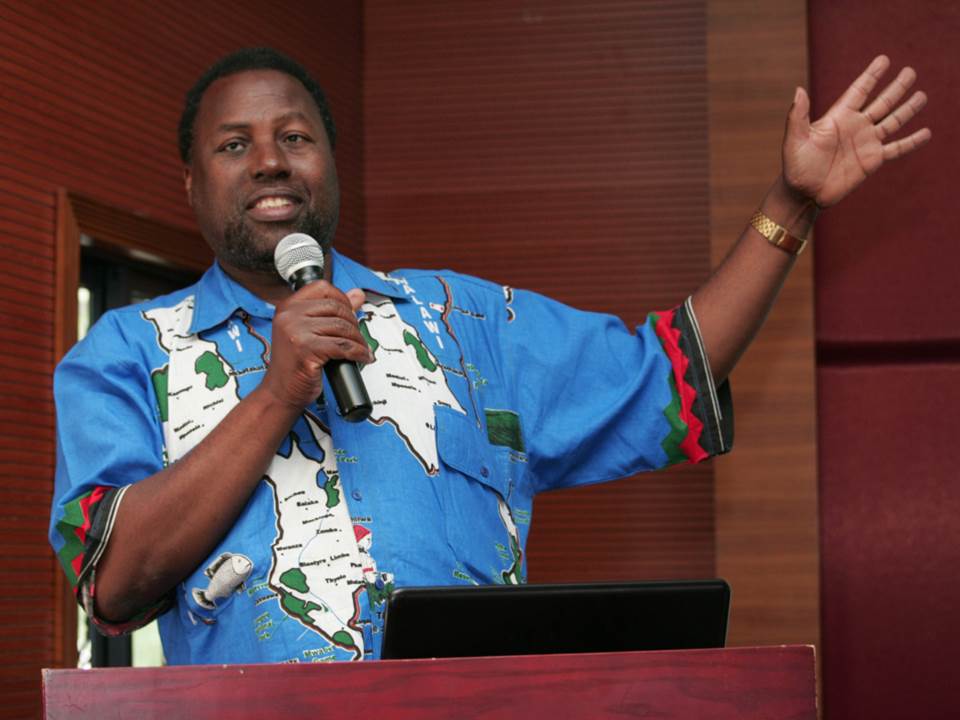Integrating local leaders innatural resource management
Malawi recently held the first-ever national chiefs forum on integrated natural resources management and transition to sustainable agriculture and livelihoods. Issues tackled included the delineation of roles and responsibilities of chiefs and constructing a collaborative framework to enhance governance of natural resources. Leadership for Environment and Development in Southern and Eastern Africa (Leadsea) is among the stakeholders that organised the meeting. Our reporter PRECIOUS KUMBANI engaged the organisation’s regional director professor Sosten Chiotha for insights. Excerpts….

Q1. How important is the involvement of local leaders in influencing adoption of environmentally-friendly practices?
A1. The issues that we are dealing with require that chiefs be part of the programmes. Where we have been planting trees, or where we have actually been addressing the issue of use of mosquito nets for illegal fishing, we have worked with chiefs, so it is very important that they be integrated in this programme.
Q2. How does the issue of population affect the successful integration of sustainable agriculture and effective natural resource management and the overall development trajectory of Malawi?
A2. Even government documents, starting with the National Environmental Action Plan -1994, have actually cited population as one of the drivers creating pressures for environmental degradation. While all our neighbours are in the range of 20 to 40 people per square kilometre, Malawi stands out at above 200 people per square kilometre. So, population is an issue. But we are happy that the government has launched the National Population Policy, which guides how we should manage the population in terms of integrating natural resource management with reproductive health and voluntary family planning, all these will be part of the solution.
Q3. The issue of gender-based violence (GBV) remains critical. Considering the role of chiefs, what needs to be done to ensure that GBV doesn’t stand in the way as they are implementing this programme?
A3. What we need is actually to empower women and girls. Empowerment can be done through education, but also through integrating them in committees. But at the same time, gender-based violence manifests itself through challenges of extreme weather events, so when we come up with the adaptation programmes, let us ensure that the issues that affect women and girls, such as family planning, reproductive health, are integrated in those programmes for response to climate change.
Q4.What challenges are being faced in implementing the policies relating to forestry and natural resource management?
A4. The challenges are there mostly because we still need energy. Malawi’s dependency on natural resources in general, but also biomass energy is very high, so we have to come up with viable alternatives. And this is possible, the President launched the Malawi carbon initiative, and one of the programmes that were showcased during that launch was the stove that uses ethanol and it is cheaper by 40 percent compared to charcoal. So, there are these alternatives, we just need to roll them out and once that is done, it means that the pressure on our forests will be reduced.
Q5. Why is Malawi not making progress in transitioning to sustainable agriculture?
A5. Because of all these challenges, that is why we have brought in chiefs. We need an integrated approach. You cannot just deal with agriculture, you have to look at conserving water as well. So, integrated approaches mean that to have sustainable agriculture you also have to manage the wetlands and the forests so that there is no soil erosion. So, all of these need to come up in an integrated manner.
Q6. How are issues of natural resource management relating to child marriages?
A6. Let’s look at why they are getting into early marriages. Like we noticed in Zomba, when Lake Chilwa had dried up, parents could not support their daughters to go to school and they decided to get married. So, we need to look at the pressures and address them, some of them could be related to extreme weather events, general poverty or challenges that parents have to decide whether to send the boy or the girl to school. So, we need to empower communities in terms of alternative livelihood options, and this is possible when you restore the forest.






One Comment